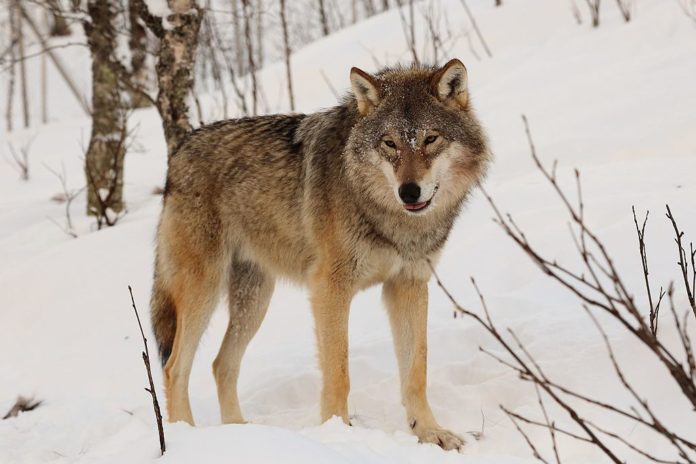MINNEAPOLIS- The federal government looks to reinstitute gray wolf hunting in Minnesota, Wisconsin, and Michigan.
Both Minnesota and Wisconsin each held three hunting seasons for wolves as late as 2014. In 2012, the U.S. Fish and Wildlife Service (USFWS) removed federal protections that would prohibit the hunting of gray wolves, among other protections for the species. Instead, the management of gray wolf populations would be left up to individual states and their respective departments of natural resources. However, in December 2014, U.S. District Court Judge Beryl Howell ruled that the removal of the federal protections were “arbitrary and capricious” and violated the federal Endangered Species Act.
While Judge Howell was sympathetic to the “practical policy reasons” for the lifting of the ban, she believed that federal regulations protecting endangered species were of greater importance than those reasons.
According to a press release by the Minnesota Department of Natural Resources, the winter gray wolf population has remained stable for the last four years. Within Minnesota’s wolf range there were 439 wolf packs and 2,278 wolves during the winter of 2015-2016, which was a slight increase from the winter before which was 374 packs and 2,221 wolves. State requirements for the wolf population are 1,600, while the federal recovery goal is 1,251 to 1,400.
Recently, an appeals court lifted the ban on hunting in Wyoming, stating that the USFWS used proper judgement and adequately responded to the concerns of Wyoming in terms of management of the wolf population there.
Further attempts to make wolf hunts legal were pursued via the attachment of riders to other bills. The most recent attempt, which attached such language to the $1.1 trillion federal spending bill failed, in part due to the efforts of a US Representative from Minnesota, Betty McCollum (DFL- MN4).
This move by McCollum puts her directly against a DFL colleague, Collin Peterson (DFL- MN7) who is one of the authors of the “Gray Wolf Management Act.” The act provides farmers and ranchers with the ability to protect their livestock from wolves.
“Choosing between protecting their livelihood or complying with a federal judicial decision is a choice no farmer should have to make,” Peterson said on the House floor. “The gray wolf population should be managed by the states, where it belongs. This is practical, bipartisan legislation that balances safety with gray wolf management”
Regardless of whether or not it goes through via court decision or legislative means, there are still many actions that must be taken at the state level in order for a wolf hunt to commence. Dan Stark, a large carnivore specialist with the Minnesota Department of Natural Resources, stated that it would take time to publish the rules and set up a permit lottery, both of which are required before any wolf hunt in Minnesota.
The gray wolf received protection under the Endangered Species Act of 1973, which made it illegal for members of the public to kill wolves.

















